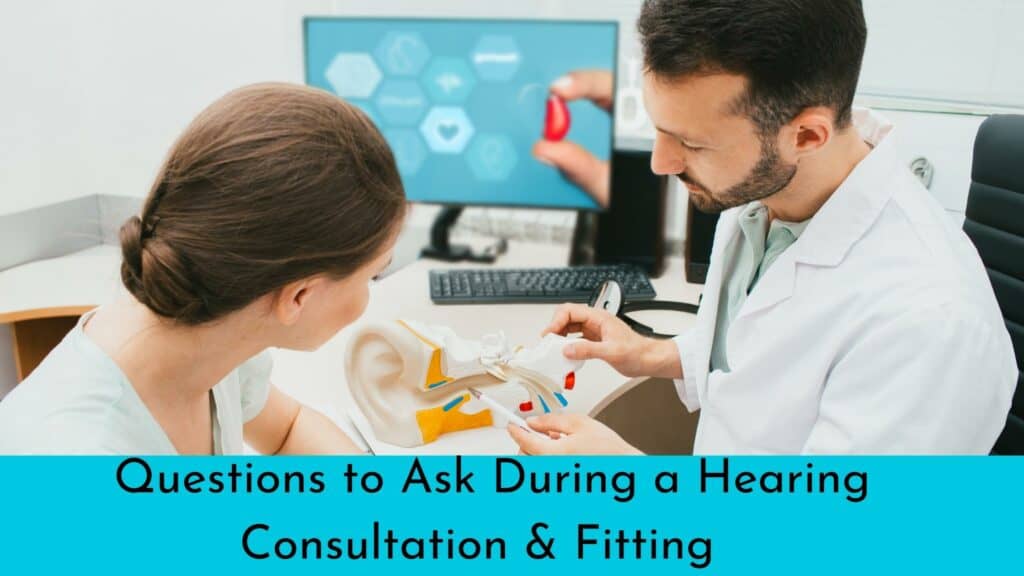Preparing for your hearing aids is an exciting time! Hearing aids are an incredibly important investment in your overall health. Providing ample support, these complex and innovative devices transform hearing and communication. Hearing aids take time to adjust to as your auditory system relearns to process sounds you have likely not heard for quite some time. Your appointment for your hearing aid fitting is an important time to learn all about your new device!
Our experienced team will program the preferred settings on your device to meet your specific hearing needs. They will also ensure that your hearing aids fit perfectly and thoroughly walk you through how to best use and maintain your new device.
We encourage you to take this time to ask all of the questions you have or been thinking about. It could be useful to spend some time beforehand coming up with a list of questions to ask during your appointment. Here are a few helpful questions you can include.
Should I always wear my hearing aids?
People with hearing loss should wear their hearing aids continuously throughout the day. This maximizes hearing in all the environments one navigates which is critical for communication, spatial awareness, ability to complete tasks and errands etc. But when you are first adjusting to hearing aids, it can be overwhelming at first. This is because your ears and brain are absorbing and processing sounds that they haven’t in quite some time. You may experience fatigue or cognitive overload and feel like you need to take breaks. This is common; some may experience a seamless transition while others need to build up to continuous use. We can discuss this with you and show you how to effectively gradually adjust to your new hearing aids.
What do I need to know about maintaining my hearing aids?
During your appointment you will learn how to safely insert and remove your hearing aids as well as how to properly maintain your device. Hearing aid maintenance is critical for their longevity and sound quality. Hearing aids are highly durable devices that typically last 5-7 years. They can be impacted by daily wear and tear: natural debris
(wind for example), moisture, earwax etc. These things can accumulate on hearing aids
so it is imperative to clean your device regularly. Be sure to discuss cleaning tips, proper
storage, and other maintenance strategies. Developing a maintenance routine can be really helpful so you can ask about this too!
How will I know when I should change the battery?
Depending on the type of battery source of your hearing aids, there are different ways to change the batteries. All hearing aids are either powered by disposable or rechargeable batteries. It is important to know when your hearing aid needs new batteries or needs to be recharged. You can discuss battery life with us and learn when to know when you should change the battery.
Do my hearing aids come with a warranty plan?
Similar to most electronic devices, hearing aids often come with a warranty plan. Warranty plans usually include coverage for repairs, damage, and loss. It is important to understand the details of your warranty plan. This includes what the manufacturer of your hearing aids cover and for how long. You may also be able to extend your warranty plan which provides you with coverage for a longer period of time. These are useful questions to ask during your fitting appointment. They can provide you with more details about the warranty and the types of services that you could later need.
Will there be a follow-up appointment?
During your hearing aid fitting appointment, you will learn the ins and outs of your hearing aid device. We will train you on how to maximize your hearing aids on a daily basis. You will learn about the different settings, technologies, and features that are available to enhance your hearing and user experience. Once you are equipped with this information and your hearing aids fit well, there typically is not a need for a follow-up appointment. But in the event that you experience any feedback issues or other unpleasant noises, you should schedule a follow-up appointment to have your hearing aids adjusted.





